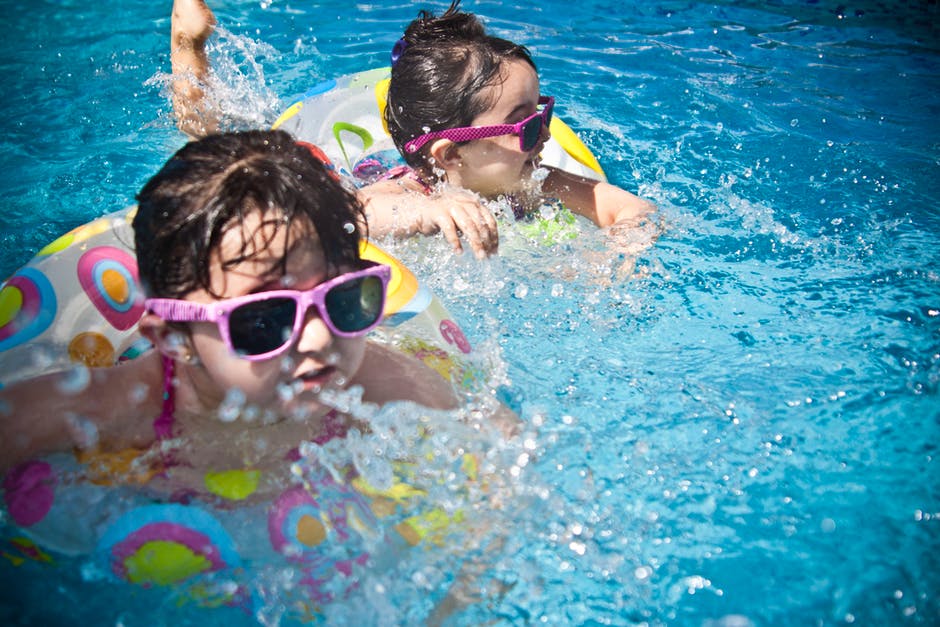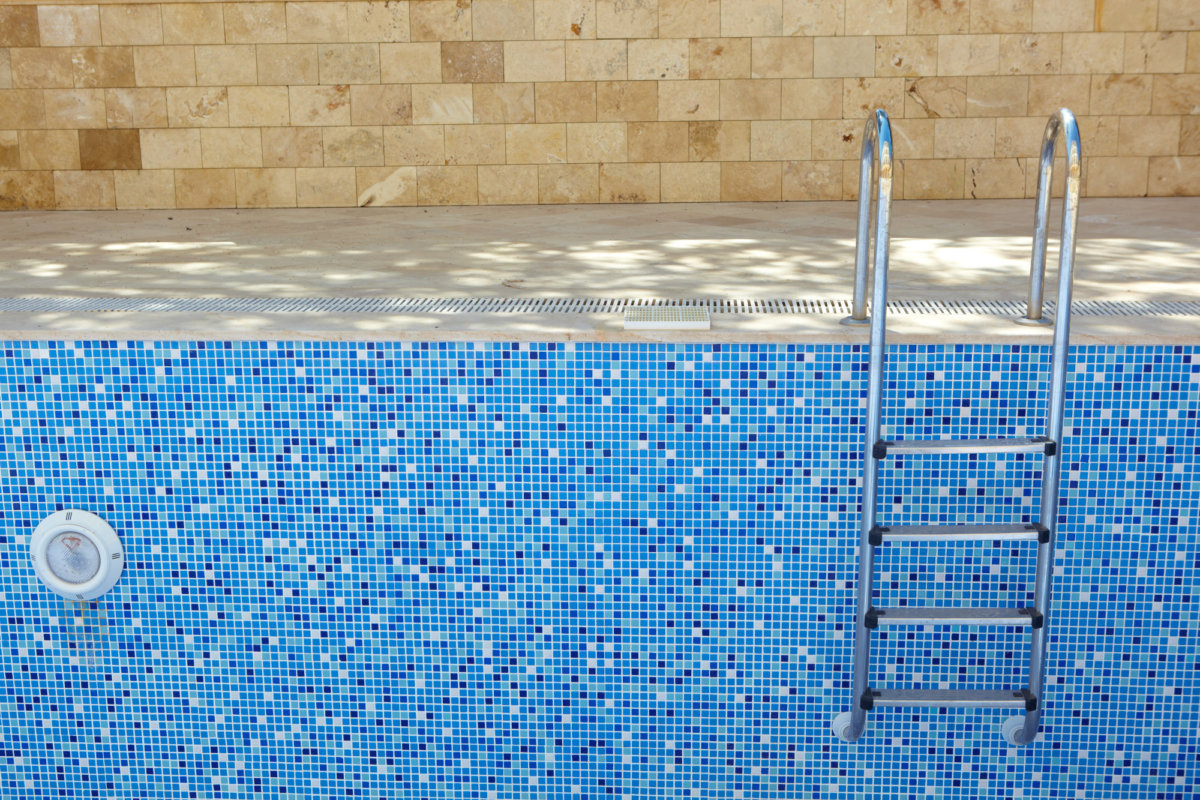How Do You Fix Pool Leaks and Staining in Denver, Colorado?
August 22, 2022by DigitalVuePOOL AND SPARepairs
Pool Leaks and Staining
Pool leaks and staining are two of the most frustrating issues pool owners face. They know something is wrong but don’t know what exactly. Numerous causes include faulty plumbing, cracks in the decking, improper installation, improperly balanced water pH, and even old age. The good news is that repairing a leaking or stained pool isn’t nearly as expensive as replacing it.
A crack in your swimming pool doesn’t necessarily mean it needs replacing. While cracks often signal damage underneath the surface, they’re rarely the root cause of severe issues like leaking water lines or damaged pump motors. But even small cracks can cause problems. If you notice any cracks in your pool, you’ll want to address them immediately. They could become more prominent over time, causing more severe problems down the road. Contact a pool repair professional at Wetworks Pool and Spa.
Pool Plumbing Leaks
Plumbing leaks happen when there is a break in the pool’s piping system. These breaks can develop due to corrosion, a cracked pipe, or faulty plumbing connections. If you see dark liquid seeping into the ground around the pool, it might mean that there is a plumbing leak somewhere in the pipes.
Another thing to check is whether the drain pipe itself is clogged up. While it’s unlikely that this would happen, it’s possible that sediment buildup could prevent proper drainage. You’ll want to clean the filter screen and flush the system in this case.
Pool Structural Leaks
A structural leak is a leak inside the pool shell itself. This could mean a crack in the liner, a hole in the tile, or even a crack in the bottom of the pool. Structural leaks are caused by improper installation of the pool decking, cracks in the foundation, or settling of the soil around the pool.
The most common cause of structural leaks is poor construction or engineering. For example, the pool shell may have been poured too quickly without letting it dry properly. There may also be an excessive settlement in the pool’s ground. If the ground shifts, it could push against the pool shell, creating a leak.
If you suspect a problem with your pool, call Wetworks Pool and Spa. We are happy to help you determine whether it is safe to continue using your pool or not.
Pool Fitting Leaks
A fitting is any penetration through a swimming pool’s wall. This includes pipes, wires, vents, drains, and anything else that might lead into the pool. Pools are not waterproof, so there is always some chance of leakage. However, knowing what causes leaks and how to stop them is essential.
The most common cause of leaking is a hole in the pool liner. These holes occur when you drill too many drain lines or install too many fixtures. They can also happen due to corrosion or damage caused by children or pets. When this happens, the leak goes straight up through the pool liner, creating a big mess.
This usually occurs because the installer did not use proper tools or techniques during installation. A leaking liner could cause damage to the pool wall or even collapse the structure.
Another common cause of leaking cracks in the pool deck. Cracks can form over time, usually around the perimeter of the pool. In addition, cracks can develop where the pool meets the ground. If you suspect this problem, call a professional plumber to repair it.
Resurfacing Your Pool
Pool refinishing is a regular upkeep procedure that involves removing and changing the top layer of the swimming pool surface. A smooth, revitalized surface, along with any cracks or leaks repaired, is typically achieved. Once complete, the pool is ready to enjoy again.
The process begins with cleaning the existing finish. Then, the old finish is removed and replaced with a new one. Finally, the pool is sealed up once again.
Another great resurfacing option is concrete overlays. Overlays are similar to vinyl liners because they’re both solid sheets of material placed directly onto the bottom of the pool. However, they differ slightly because they’re usually installed in multiple layers. This allows homeowners to customize the color and pattern of the surface, depending on what suits their style better.
However, if you choose to go with a fiberglass liner, you’ll likely want to invest in a coating. The coating helps protect the fibers of the liner against wear and tear. Some coatings even add extra protection against algae growth.
The most common signs that your pool needs resurfacing include a rough surface, water spots, and a dull appearance. If you notice any of those things, it’s probably time for a resurface. Your pool’s surface materials are meant to protect your pool against the elements, including sun exposure, chlorine, debris, and algae growth. But over time, pools become worn out and start showing their age. This causes the protective material to wear away and eventually fall off. This leaves bare areas where dirt and grime can easily infiltrate the pool.
Finally, if you decide to resurface your pool, check out our guide on how to care for your pool. We’ve got everything you need to know about keeping your pool healthy and safe throughout the winter.
Pool Staining Causes and Solutions
Staining can occur anywhere in a swimming pool. It happens pretty frequently. Staining is often just another sign something has gone wrong with your pool. There are many causes of pool stains, including:
– Poor water balance
– Insufficient cleaning habits
– Improper maintenance
– Incorrect pH levels
– Overuse of chemicals
– Unsuitable filtration systems
– Excessive algae growth
If you notice staining on your swimming pool walls, it could be caused by several different things. The most common culprits include mineral deposits, algae growth, dirt and grime buildup, and chemical spills. If you try cleaning up the stain, you may worsen the situation. To avoid damaging your pool wall surface, contact a professional pool cleaner. They’ll use special equipment to safely remove the problem without causing damage to the surrounding area.
Pool Stain Diagnosis
How do you know which is what? Organic stains are usually easy to identify because they don’t respond well to cleaning products. They tend to be darker, streakier, and like something came from the ground. Algae blooms are different, though–they look similar to organic stains but aren’t organic. Instead, they’re caused by microscopic organisms that live in pools. These organisms produce tiny amounts of oxygen, causing the water to turn blue and brownish. Because algae grow faster than organic stains, algae blooms often appear within days of the initial problem.
Location
Organic stains usually occur on wood surfaces around the edges of pools and near skimmers, pumps, filters, and drains. They can also appear on decking, walkways, benches, and railings. Metalic stains often appear on concrete surfaces around the pool’s edge, along the bottom steps leading into the pool area, and on the sides of walls and fences.
Response
If you brush the stain away, does it come right back? Or does it react to shocking the water or spraying granular chlorine over it? Organic stains typically disappear quickly, while metallic ones respond well to both methods.
Algae Blooms
Algae blooms are typically treated with chemicals, such as chlorine, bromine, or copper sulfate. Chlorine kills bacteria and algae, while bromine and copper sulfate kills algae without harming the rest of the ecosystem. You’ll see signs around pools warning against using certain chemicals, especially chlorine.
If you suspect an algae bloom, check the pH level of your pool. A low pH level indicates there might be too much alkalinity in the water. This could indicate a buildup of calcium carbonate, which controls the pH balance in swimming pools. You’ll need to add acid to lower the pH level to correct this problem.
Pool Water Source
Pool owners are advised to check the quality of their source water before filling it into their pools. A recent study conducted by researchers from Michigan Technological University found that many swimming pools contain elevated levels of calcium, magnesium, potassium, bromide, chloride, sodium, lead, zinc, arsenic, cadmium, mercury, selenium, and chromium. In some cases, the concentrations of these elements exceed those considered safe by the EPA.
The study found that some of the most common contaminated water sources include municipal tap water, healthy water, and rainwater. Additionally, the researchers noted that pool owners often do not know whether the water they use to fill their pools is safe because there are no federal standards for testing. They recommend that pool owner perform tests on the source water used to fill their pools.
Swimming Pool Ionizers
Swimming pool ionizers are great tools to help keep your pool healthy and safe. They work well with chlorine and other regular pool sanitizers to kill harmful bacteria and prevent algae growth. In addition, they make it easier to maintain a crystal clear swimming environment by reducing the number of chloramines needed to treat the water.
However, the ionizer itself is not enough to do all the work. You still need to add minerals to assist in controlling bacteria and preventing algae growth. And since mineral salts don’t oxidize organic matter like lotions, sweat, and skin cells, you’ll also need to use another chemical to provide the necessary oxidation.
Contact Wetworks Pool and Spa
Wetworks Pool and Spa provides professional pool care throughout Denver, Colorado. Our expert technicians offer regular pool inspections, repairs, and maintenance to ensure your pool stays safe and healthy. Whether you are looking for routine pool cleaning or repair work, we offer reliable and affordable solutions to keep your pool sparkling clean.
We perform inground pool openings, closings, and repairs to solve your pool’s problem. If you are having trouble getting into your pool, our team can open it up for you. In addition, we install and maintain filters, pumps, heaters, skimmers, and water treatment systems. Call us today at 720-401-0004.




